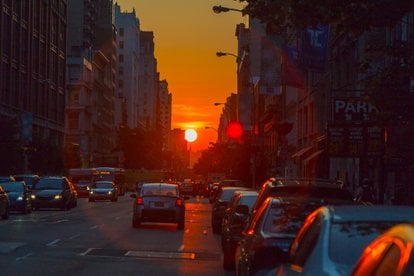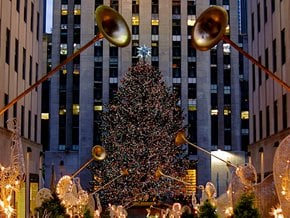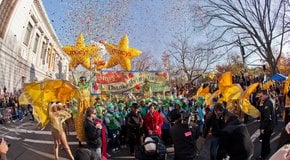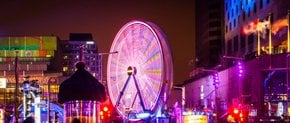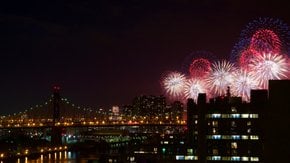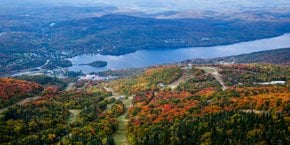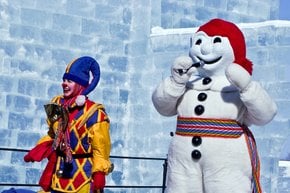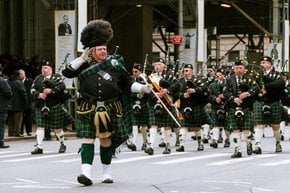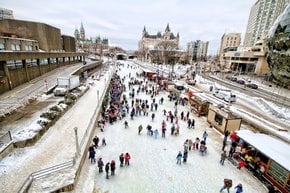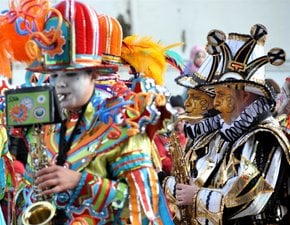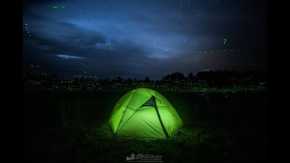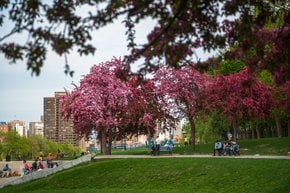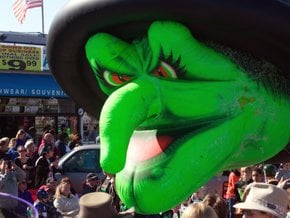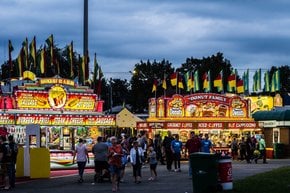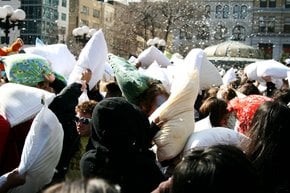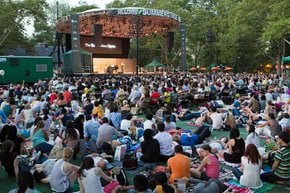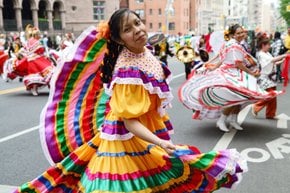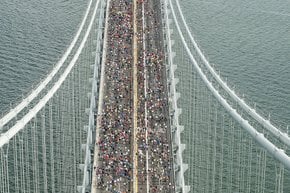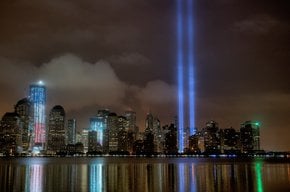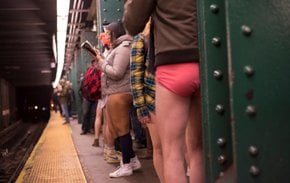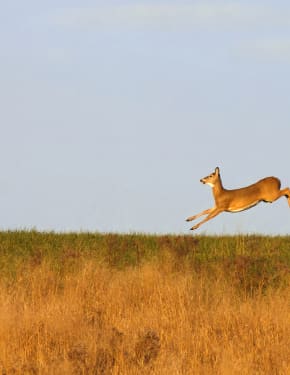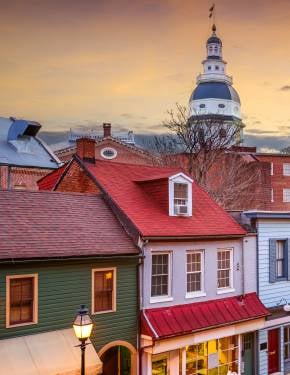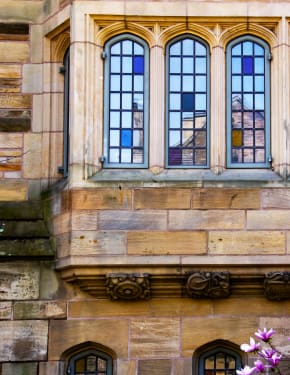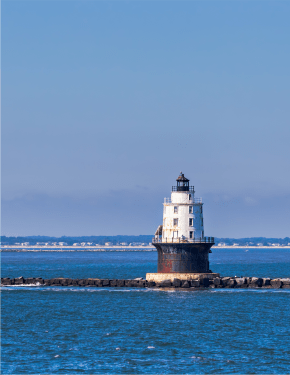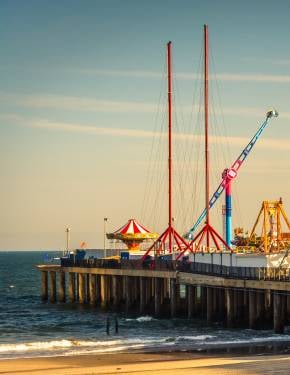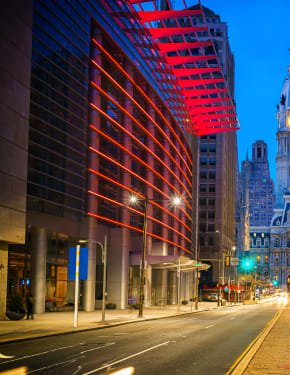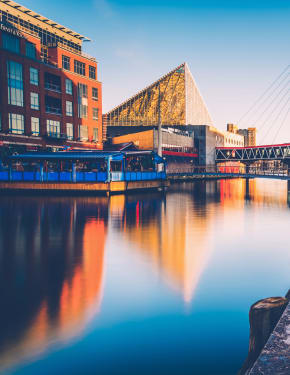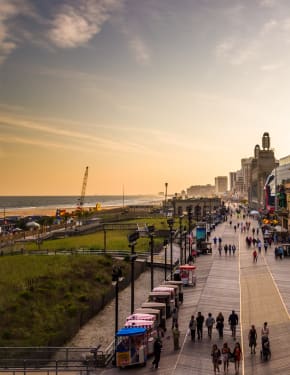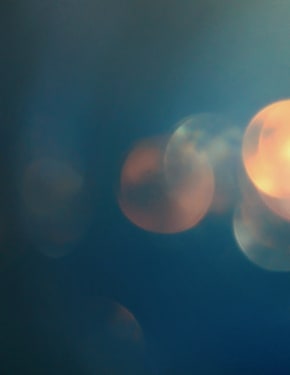Manhattanhenge 2026 in New York
A magnificent view of the setting sun right between the buildings in Manhattan
Dates: November 29–November 30 | January 11–January 12 | May 28–May 29 | July 12–July 13
NYC sunsets and sunrises are stunning all year round, but never better than Manhattanhenge. Because our planet is constantly rotating, the sun sets and rises at a different angle every day. The rectangular grid of Manhattan allows the sun to align with the Earth exactly between its skyscrapers only four times a year—twice at Manhattanhenge sunset, and also two more times at Manhattanhenge sunrise or Reverse Manhattanhenge. Crowds pack the streets of New York City to behold the incredibly beautiful phenomenon which was discovered by Neil deGrasse Tyson.
Best Time to See Manhattanhenge
The most popular time to see Manhattanhenge occurs at sunset in late May and mid-July, typically on May 28–29 and July 12–13 after 8 pm. However, the exact dates and times might differ slightly due to the leap year. So consider checking the latest reports when planning your most memorable and picturesque summer evening. This year, on May 28th and July 13th, you'll have a chance to witness half of the sun above the horizon. And if you'd like to see the full disk align with Manhattan buildings, make plans for May 29th and July 12th.
Reverse Manhattanhenge
Reverse Manhattanhenge is a similar to Manhattanhenge event but often overlooked by the public. And there might be a reason for it—morning Manhattanhenges are less popular since the east of Manhattan is not as flat as the west, creating a less ideal conditions for photographs. To witness this event, consider getting up early as the ephemeral show starts shortly after 7 am. Reverse Manhattanhenge takes place at sunrise in late November and mid-January, namely on November 29–30 and January 11–12.
Best Places to See Manhattanhenge in Manhattan
If you're wondering where to see Manhattanhenge, the locations are listed here too. Check out the best spots to witness spectacular summer sunsets: 14th St & Broadway (close to Union Square); 23rd St & Broadway (close to the Flatiron Building); 34th St & Fifth Avenue (close to the Empire State Building); 42nd St & Third Avenue (with great views of the Chrysler Building and the Park Avenue Viaduct where it crosses above 42nd St); and lastly 57th St & Eighth Avenue (close to the Hearst Building). Grab your camera and find a place with a nice view to take some of the best photos in your life! However, if you visit during winter, wait for the sun to rise at 5th Avenue and 41st Street.

